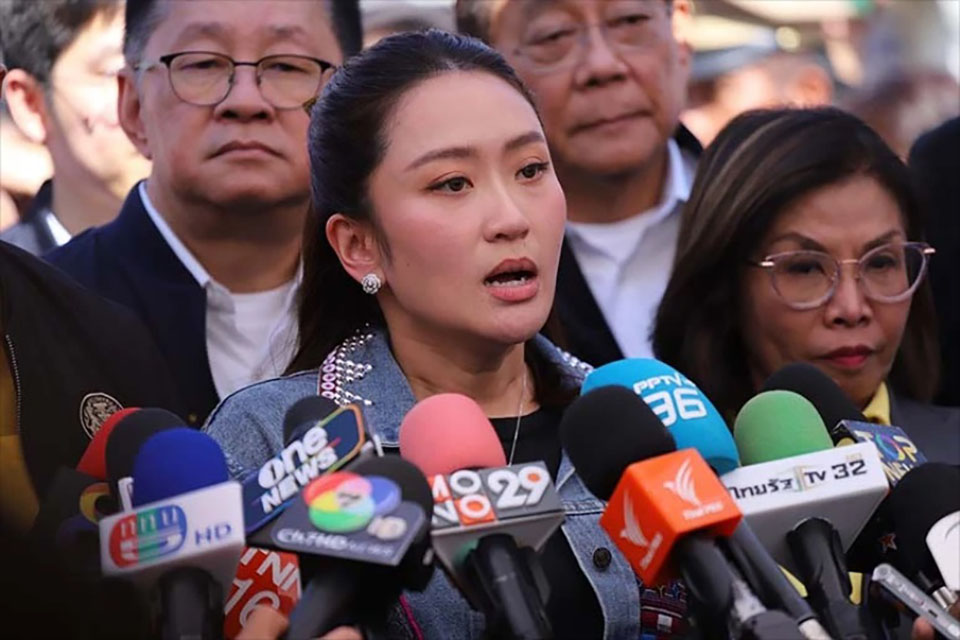
BANGKOK, Thailand – A recent Suan Dusit Poll reveals that Prime Minister Paetongtarn Shinawatra’s government faces growing public disappointment and lack of confidence in its first three months in office, with most citizens highlighting economic concerns as the government’s biggest challenge.
According to the nationwide survey, conducted by Suan Dusit University, 39.85% of respondents stated they are unable to assess the government’s performance thus far, while 28.14% said it falls short of their expectations. Notably, 54.99% of respondents expressed little confidence in the government’s ability to resolve economic issues.
The only visible achievement cited by 71.44% of respondents is the government’s 10,000-baht cash handout policy, while 70.84% emphasized that urgent action is needed to address cost of living, job creation, and income generation.
Suan Dusit Poll Chairperson Pornpan Buathong explained that while short-term policies like cash distribution offer temporary relief, the public expects more significant and tangible results given the government’s experienced advisors.
Meanwhile, Dr. Benjaporn Phuengchai, Assistant Dean at the School of Law and Politics, remarked that the first three months are akin to a “probation period” for the administration. However, the public remains frustrated, especially regarding the economy, which has shown no clear progress during this time.
Critics argue that Paetongtarn, viewed as an inexperienced “trainee prime minister,” has yet to demonstrate leadership capable of addressing pressing economic concerns. The government, heavily associated with Thaksin Shinawatra’s influence, is under mounting pressure, with public perceptions increasingly critical of its ability to fulfill campaign promises and revitalize Thailand’s economy.
Observers note that global economic challenges, including rising trade tensions and slow growth, may further complicate the government’s economic agenda, raising doubts about its ability to achieve targeted GDP growth in 2025. The current sentiment, analysts warn, could severely impact the administration’s credibility and long-term stability if economic solutions remain elusive.










